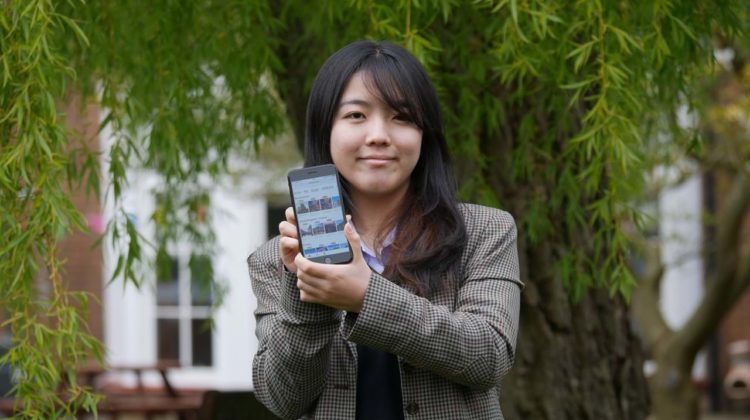
The prestigious titles of UK Young Scientist of the Year and UK Young Engineer of the Year are up for grabs once again as the Big Bang Competition, the UK’s top annual science and engineering competition, opens for entries.
The competition, which is free to enter, is open to students aged 11–19 who are studying in the UK. Competitors can only enter a single project, either on their own or as part of a team. Projects can cover any topic within the STEM field, whether it be design, technology, computing, the environment, health or more – the only limit is the student’s imagination.
The UK Young Engineer of the Year 2021, Kaede Sugano (pictured above), a Year 12 student from Rugby School won with a project she called ‘RIHLA’. Challenged by her grandparents to find the perfect holiday for their 50th wedding anniversary, Kaede created an algorithm and used it to develop a website that compared package holidays and then suggested the one that best met a given traveller’s needs.
Bhuvan Belur, a Year 13 student from Westminster School in London, won in the senior engineering category for his ‘Senseborg Belt’, a device that he designed to improve the wearer’s sense of balance, particularly to help those with Parkinson’s disease and vertigo.
The intermediate engineering category was won by Ludovica Knight, a Year 10 student from St Catherine’s College in Eastbourne. Her project, ‘Mechanical energy storage for African village’, involved a model demonstration of a mechanical energy storage system. She used a model wind turbine, an old clock spring and a gearbox connected to a DC alternator to demonstrate how wind energy can be collected in the spring and stored for later use.
And Serena Jacob, a Year 9 student from Bedford Girls School in Bedford, won the junior engineering category for her project ‘DM2.Prevent’. Serena created an app designed to help prevent or treat Type 2 diabetes, targeting reversible risk factors for the disease and providing ways to reduce those risks. Using data inputted by the user, the app calculates personalised risk scores and generates a user-specific plan to reduce their risk.
As well as these core prizes, there will be a number of issue-specific special awards sponsored by companies and organisations from across industry.The winners of will be announced at the Big Bang Fair, which will take place from 22 to 24 June 2022 at the NEC, Birmingham.
Entries close on 20 March 2022. Students and teachers can find out more about the competition and how to enter here.


